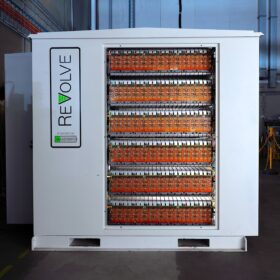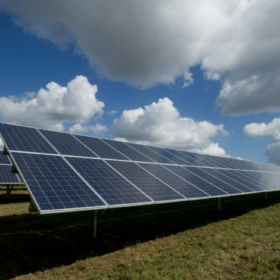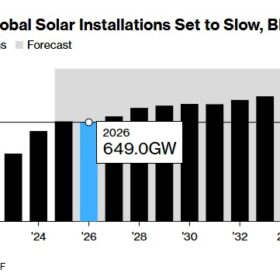Scientists from leading Australian universities have provided expert commentary in response to the new US government’s policies, speculating on impacts – good and bad – on Australian society, politics and markets, including renewable energy.
Swinburne University of Technology Energy Transition Hub Director and Electrical Engineering Researcher Professor Mehdi Seyedmahmoudian
Sustainable and clean energy movements go beyond political agendas and decisions. While political actions can influence the pace or direction of these initiatives, they cannot halt the momentum of this global shift, which is driven by compelling economic, environmental, and technological reasons.
For instance, when former President Trump withdrew the U.S. from the Paris Agreement, it raised concerns about its impact on clean energy efforts.
This decision undoubtedly slowed some U.S.-based renewable energy industries, particularly those focused on non-fossil energy generation. However, it’s important to note that such actions do not negate progress altogether.
Trump’s $500 billion investment in AI technologies, for example, could actually accelerate the integration of renewable energy into our energy ecosystems. One of the biggest challenges for renewable energy is not just generation but effective integration into existing energy grids.
AI has the potential to solve these problems by enabling smarter, more efficient energy management, which is critical for reducing carbon emissions. Without robust integration systems, renewable energy cannot reach its full potential in contributing to a sustainable energy future.
Furthermore, the global clean energy movement is not solely dependent on the U.S. Many other nations are seizing the opportunity to lead in renewable energy innovation and claim a larger share of this valuable market.
The shift toward sustainability is inevitable, and while political decisions may alter the pace, the broader movement will continue to gain strength and adapt to challenges.
Macquarie University School of International Studies Associate Professor Jonathan Symons
President Trump has clearly signalled his desire to swing a wrecking ball through climate policy. His slogan ‘Drill baby drill’ and America’s withdrawal from the Paris Climate Agreement reflect the return of climate denial.
While there’s no good news here, it’s important to remember that:
- Greenhouse gas emission trends are shaped by wider economic and technological trends, more than by presidential rhetoric. US fossil fuels surged under Biden, despite his climate-friendly rhetoric. Greenhouse gas emissions fell during the first Trump presidency (as coal lost ground to fossil gas and renewables, and the COVID pandemic reduced economic activity) despite Trump’s efforts to torpedo climate policy.
- The Biden Administration’s unprecedented investments in clean technologies will continue to reduce emissions even if the Inflation Reduction Act is repealed. Given the economic benefits that Biden’s climate and industry policies have delivered to Republican districts, repeal may be politically difficult.
Both Democrats and Republicans have long supported investments in energy innovation. A Republican-dominated Congress may well continue Biden’s investments in geothermal and nuclear energy.
Republicans may also advance reform of interstate-transmission permitting that might enable greater utilisation of renewable energy.
CSIRO Research Scientist and Global Carbon Project Executive Director Dr Pep Canadell
Trump’s actions might be able to slow down decarbonisation in the US, and to a lesser extent the world, but they cannot halt the now inevitable decarbonisation pathway of the global economy.
They will also reinforce China’s position as a global leader in green technologies, a development that stands to benefit many countries.
The University of Melbourne Climate Futures Deputy Director of Engagement and Associate Professor Ben Neville
Despite the blow to international cooperation on climate action that the US withdrawal from the Paris Agreement makes, there will be some silver linings for Australia.
Investors will be looking elsewhere for climate finance opportunities if Trump is able to shut down Biden’s support for renewables through the Inflation Reduction Act.
But, ultimately, climate change is a global problem that doesn’t respect borders, and so a ‘drill, baby, drill’ mentality, and pulling out of the best hope for global cooperation through the Paris Agreement, is bad news for us all.
Curtin University Professor Peter Newman
Donald Trump can’t do much about stopping the Net Zero transition that is well underway globally. There is over $3.1 trillion (USD 2 trillion) already invested in the transition with at least $80 trillion being planned.
The leading companies in Europe, China and the US are not pulling back as they are good commercial projects and Australia is clearly a big player in both the minerals needed and the adoption of solar, batteries and electric vehicles (EVs) that are driving the first decade of this transition.
The equity issues of the US Government withdrawal are an issue as the US is a major contributor to the UN Climate Fund designed to assist the Global South in both its transition and their resilience to massive climate change.
Perhaps one of the key issues is that the LA fires exposed a major problem in global insurance and if climate denialism becomes a feature of US governments and it spreads to other countries, then there could be a collapse in global insurance that will undermine the whole of the world economy, if not the whole of civilisation.
So, there are serious consequences in global climate denialism but at this stage the horse has bolted on the Net Zero transition which started in 2016 with the Paris Agreement.
After nearly a decade of recognising that this was an economically better way to build cities and regions, there is no possibility of the US doing anything much, other than losing global leadership in the next economy.





By submitting this form you agree to pv magazine using your data for the purposes of publishing your comment.
Your personal data will only be disclosed or otherwise transmitted to third parties for the purposes of spam filtering or if this is necessary for technical maintenance of the website. Any other transfer to third parties will not take place unless this is justified on the basis of applicable data protection regulations or if pv magazine is legally obliged to do so.
You may revoke this consent at any time with effect for the future, in which case your personal data will be deleted immediately. Otherwise, your data will be deleted if pv magazine has processed your request or the purpose of data storage is fulfilled.
Further information on data privacy can be found in our Data Protection Policy.